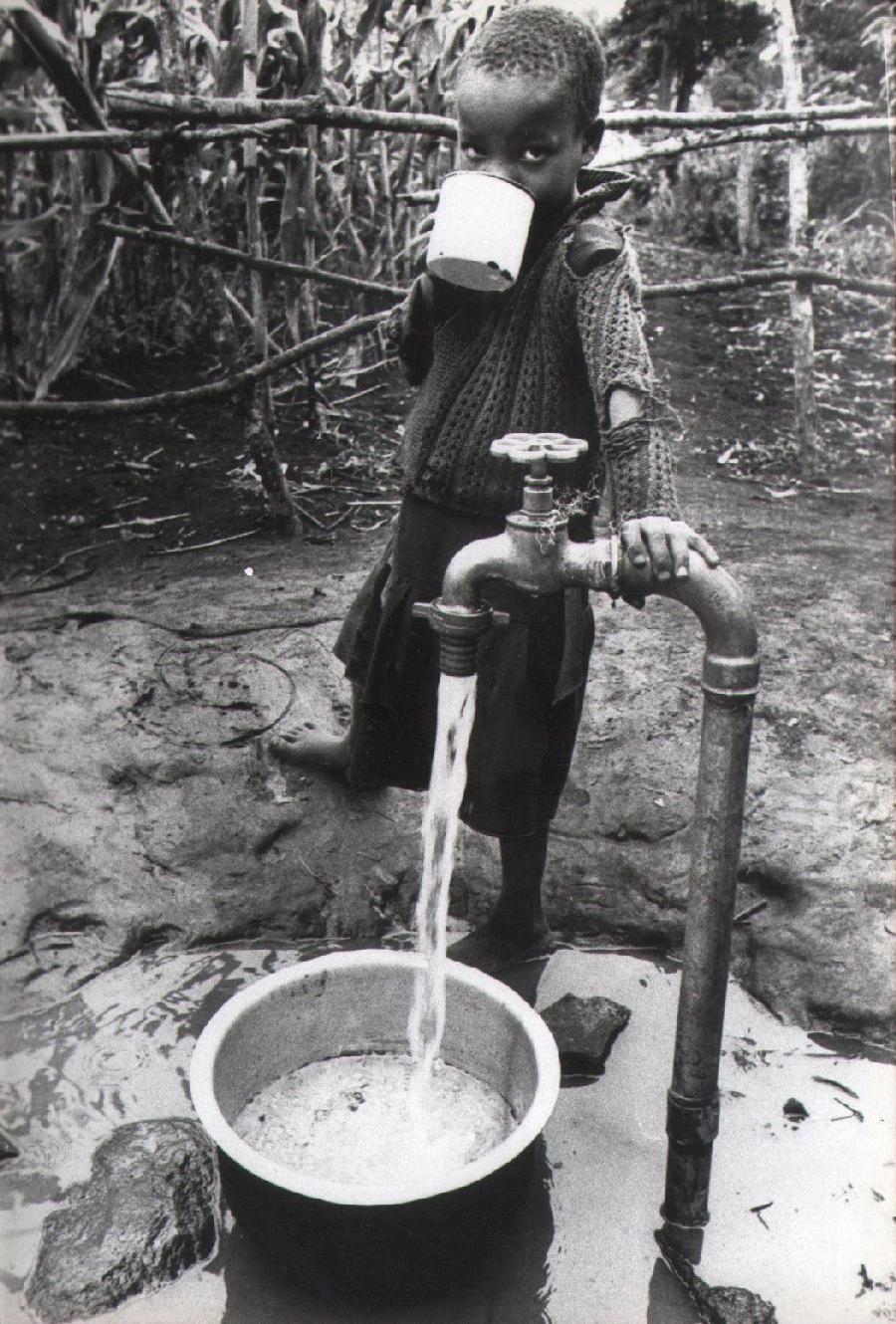
Economics: The Third World--Developing Countries

Figure 1.--Most of the approximately 200 countries around the world today have come into existence as a result of the decolonization process following World War II. The Third World leaders who took comtrol of the former colonies were for the most part inexperienced and poorly educated. The newly independent countries launched economic programs to rapily develop moern economies. There was widespread optimism about a golden, prospeous future. The result was, however, a tragic abysimal failure. In many former colonies, economic conditions actually declined. Unexpectantly it was the former colonial powers in Wesrern Europe that expeienced an economic miracle. Most Third World countries are still struggling to provide clean water to rapidly expanding populations. This is a scene from Kenya in 1991. Kenya was one of the more successful African countries. Photo: J. Schytte.
|
|
Most of the approximately 200 countries around the world today have come into existence as a result of the decolonization process following World War II. The Third World leaders who took comtrol of the former colonies were for the most part inexperienced and poorly educated. And despite the vast differences among the countries involved, most shared two fundamental beliefs. First, the end of colonialism would immediately mean a bonanza of wealth accuring to their countries. Second, socialism wwas a much more efficent and fair economic system than capitalism. A third widely held belief although not so universally shared was that the Soviet Union was a stunning success and that one-party statist governments could best guide rapid economic development. Latin America was a little different, but followed a similar economic path. Thus as the many new countries became independent and launched new economic programs, there was widespread optimism about a golden, prospeous future. The result was, however, a tragic abysimal failure. In many former colonies, economic conditions actually declined. It was the former colonial powers in Europe that expeienced economic miracles. Europeans, at least Europeans in the capitalist West, within a few years after the War, were living prosperous lives far beyond economic levels before the War. And the economic failure in the third world ocurred despite massive economic assistance from America and Europe. A factor here was the security situatin which declined after colonial rule, but economic policy was a major cause of the failure to achieve the great hopes that accompanied decoloninization. Most Third World countries are still struggling to provide clean water to rapidly expanding populations (figure 1)..
CIH

Navigate the Children in History Website:
[Return to the Main Economics page]
[About Us]
[Introduction]
[Biographies]
[Chronology]
[Climatology]
[Clothing]
[Disease and Health]
[Economics]
[Freedom]
[Geography]
[History]
[Human Nature]
[Law]
[Nationalism]
[Presidents]
[Religion]
[Royalty]
[Science]
[Social Class]
[Bibliographies]
[Contributions]
[FAQs]
[Glossaries]
[Images]
[Links]
[Registration]
[Tools]
[Children in History Home]
Created: 11:15 PM 1/18/2018
Last updated: 11:15 PM 1/18/2018



